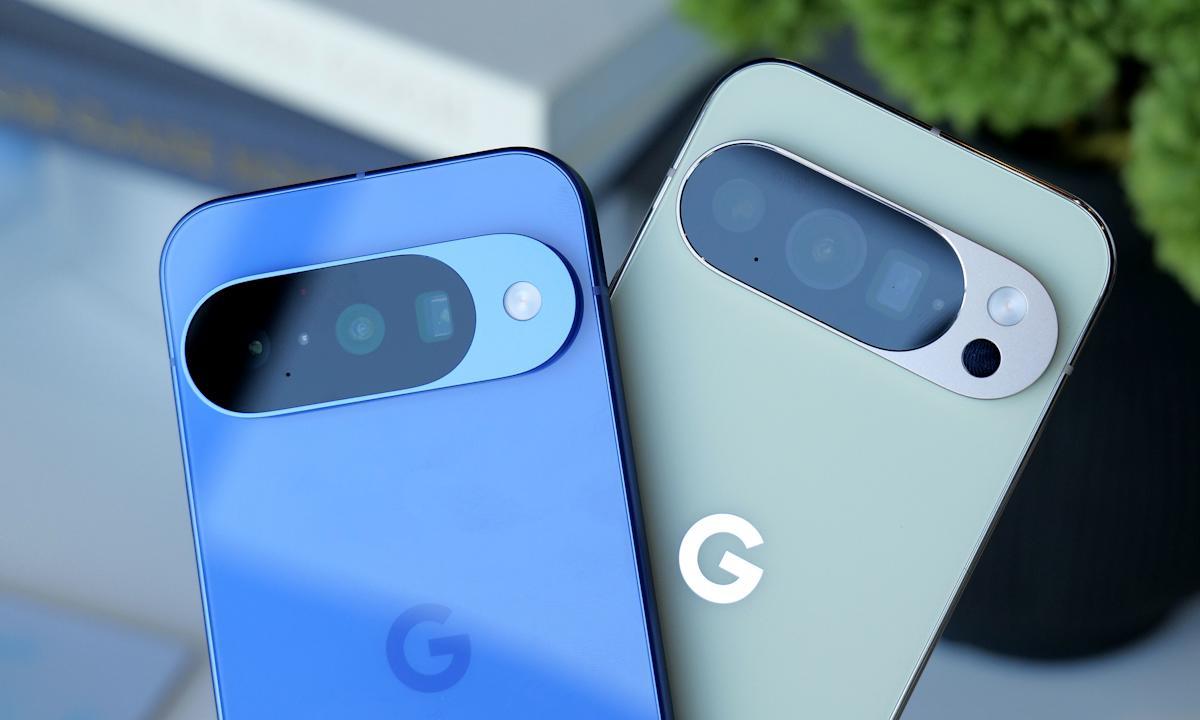Google Enhances Accessibility Features for Older Pixel Phones with AI-Powered Upgrades
2 Sources
2 Sources
[1]
Your older Pixel phone is getting these 4 useful, AI-powered accessibility upgrades
In the wake of another huge Made by Google event - check out our Pixel 9 Pro hands-on and Pixel Watch 3 hands-on for some of the details - Google has also pushed out some significant AI-powered upgrades for Pixel phones old and new. There are four upgrades in total, as outlined in a blog post by Google. First is Guided Frame, which gives spoken guidance when users are framing a shot - saying when there's a face in the frame, and even warning about low light, for example. Guided Frame has been around for a while to help those with impaired vision, but it's moving from the Accessibility settings in Android and will now be available from the main camera settings. Previously, you needed to enable the screen reader to get to it. In addition, Google is promising improvements in object recognition, face filtering in group photos, and object focus. It should mean a more useful and more accurate Guided Frame experience that's easier to get to. Next, the Pixel-exclusive Magnifier feature - that essentially lets you use your phone camera like a powerful magnifier to better see the world around you - is getting better, too. A new selfie mode is being added, which helps when touching up make-up, for example. The Magnifier is also getting the ability to search for certain words in your surroundings (like an airport gate number), a picture-in-picture mode so you can still see the wider context, and the ability to swap between camera lenses. Next up we've got Live Caption (which captions videos on Android in real-time, using AI) and Live Transcribe (which works in a similar way, but turns spoken audio into text while instantly translating it). Seven new languages are being added to both these features - Korean, Polish, Portuguese, Russian, Chinese, Turkish, and Vietnamese - together with offline access for Live Transcribe, so you can use them in foreign climes without an internet connection. If you've got a foldable phone - maybe something like the brand new Google Pixel 9 Pro Fold, perhaps - then there's a new dual-screen mode for Live Transcribe as well. It means one screen can show one language, while around the back of the phone the other display shows the other language. "With dual-screen mode, you can easily set your phone in a tabletop posture on any surface for better visibility of transcriptions," says Google. "Now everyone around the table can follow the conversation - whether you're attending a meeting or having a dinner conversation with friends." It's not clear from Google's blog posts which older Pixel phones are getting these features, but presumably if they're already available on your handset at the moment, you'll be getting the updates when they roll out. For the Magnifier feature specifically, available through the Google Play Store, you'll need a Pixel 5 or up. We're still picking through all the announcements from the Made by Google event, as well as forming our thoughts on the new hardware Google has unveiled. We also saw some pretty major updates for the Google Gemini AI assistant.
[2]
Google improves accessibility features: Pixel magnifier and live transcribe Receive major updates - Times of India
The TOI Tech Desk is a dedicated team of journalists committed to delivering the latest and most relevant news from the world of technology to readers of The Times of India. TOI Tech Desk's news coverage spans a wide spectrum across gadget launches, gadget reviews, trends, in-depth analysis, exclusive reports and breaking stories that impact technology and the digital universe. Be it how-tos or the latest happenings in AI, cybersecurity, personal gadgets, platforms like WhatsApp, Instagram, Facebook and more; TOI Tech Desk brings the news with accuracy and authenticity.
Share
Share
Copy Link
Google rolls out four new AI-driven accessibility features for older Pixel phones, improving usability for users with visual and auditory impairments. The update includes enhancements to Pixel Magnifier and Live Transcribe.

Google's Commitment to Accessibility
Google has once again demonstrated its dedication to making technology more inclusive by introducing four new AI-powered accessibility features for older Pixel phones. These upgrades aim to enhance the user experience for individuals with visual and auditory impairments, showcasing the company's ongoing efforts to improve device usability across its product line
1
.Pixel Magnifier Enhancements
One of the most significant updates is to the Pixel Magnifier, a tool designed to assist users with visual impairments. The improved version now allows users to magnify text and images directly from their camera viewfinder, providing a more seamless and intuitive experience. This feature enables users to zoom in on distant objects or small text without the need to capture a photo first, making real-time visual assistance more accessible
2
.Live Transcribe Upgrades
Google has also made substantial improvements to its Live Transcribe feature. This tool, which provides real-time speech-to-text transcription, now boasts enhanced accuracy and expanded language support. The update includes the addition of new languages and dialects, making the feature more globally accessible. Furthermore, Live Transcribe can now better distinguish between speakers in a conversation, improving the overall transcription experience for users with hearing impairments
1
.AI-Powered Image Descriptions
Another noteworthy addition is the AI-powered image description feature. This tool uses advanced machine learning algorithms to generate detailed descriptions of images, benefiting users with visual impairments. The feature can identify objects, people, and scenes within photos, providing a comprehensive understanding of visual content
2
.Related Stories
Gesture Navigation Improvements
The fourth major upgrade focuses on gesture navigation, making it easier for users with motor impairments to interact with their devices. While specific details about these improvements are limited, the update is expected to enhance the overall user interface accessibility, allowing for more intuitive device control
1
.Availability and Impact
These new features are being rolled out to older Pixel phone models, extending the benefits of Google's latest accessibility innovations to a broader user base. This move not only enhances the longevity of older devices but also reinforces Google's commitment to inclusive technology. By leveraging AI and machine learning, Google continues to push the boundaries of what's possible in mobile accessibility, setting a new standard for the industry
2
.References
Summarized by
Navi
Related Stories
Google Enhances Accessibility with AI-Powered Features for Android and Chrome
16 May 2025•Technology

Google's Pixel 10 Introduces AI-Powered Camera Features and Enhanced Capabilities
21 Aug 2025•Technology

Google's December 2024 Pixel Update: Gemini AI Takes Center Stage with Personalization and Extended Functionality
06 Dec 2024•Technology

Recent Highlights
1
Google Gemini 3.1 Pro doubles reasoning score, beats rivals in key AI benchmarks
Technology

2
Nvidia and Meta forge massive chip deal as computing power demands reshape AI infrastructure
Technology

3
ChatGPT cracks decades-old gluon amplitude puzzle, marking AI's first major theoretical physics win
Science and Research





